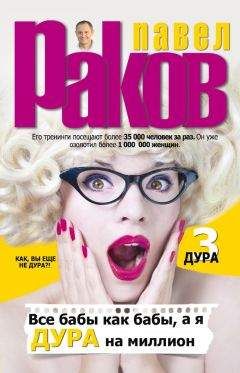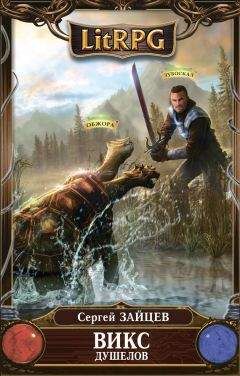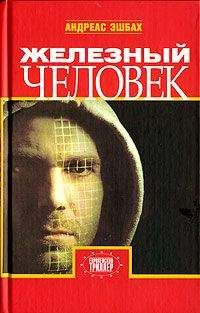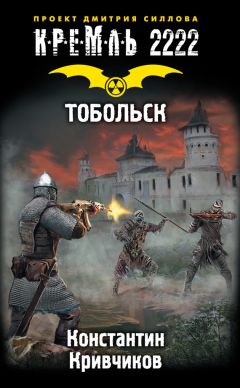Ed Lacy - Breathe No More My Lady
I nodded politely as I lit my pipe. Joel pulled a corn-cob from a desk drawer, borrowed some tobacco.
He puffed and nodded. “Nice nut flavor, I like this.”
“I'll part with my secret formula some day,” I said, glancing at my watch.
“I'd also started a new novel—in fact I started two more new novels. Hell, the two grand seemed to vanish and we were in debt. I got nervous, panicky. I borrowed some money from my mother; Wilma and I decided we needed a change. We went to the Florida Keys—a la Hemingway. Everything was wrong—Wilma is the bossy type without meaning to be. Our marriage was going one-sided. I was losing confidence in myself as a man, as a writer. Doc Matt Anthony straightened all that out.”
“How?”
“We met Fran and Matt in Key West. Naturally, I'd heard of him and on seeing him, well, he seemed the very personification of a writer: hearty, confident, easy-going, living well... a real pro. He did so much for me. For one thing he got me off the 'great' writer kick, showed me you have to be a hack to eat regularly. This bit about waiting for the creative mood is only for the dilettantes. He got me into the habit of writing every day, to stop looking on writing as a talent or gift, but rather as a job where you must keep producing. In desperation I'd been trying everything—pulps, confessions, quality yarns. Matt took the time to read much of my stuff, told me I had a knack for writing children's books. He was right. I've had five published with another two due shortly. I write for the 6 to 10 year old group, and since there are always new brats of that age every year, you keep selling. My goal is to have about 20 in print, and if each brings in a few hundred in royalties, why I'll practically have an annuity for life. Then I can afford to try other forms of writing.”
“Sounds like a wise idea,” I said. “But to return to Matt....”
He held up his hand as if to ward off a punch. “I know I must be boring you, Connor, but you want to get the picture of Matt and Fran. Actually it was really Fran who taught me the financial mechanics of writing. Her first husband had been an artist with a big A. Type of joker who convinces himself he's only living for his art—in his case a rather bad novel. As Fran said, art becomes an escape, the artist can't be bothered with the realities of food and rent. Fran was constantly nagging Matt to keep his expenses down. That's the reason we live in this dump—overhead can strangle a writer. Too often a writer has a good year, say he makes ten grand, starts living up to that, and paying taxes on it, only to find—as I did—that the years to come aren't good, money-wise. Poor Fran didn't have an easy life with Matt. But don't misunderstand me, I admire Matt. If he played the clown he was also a man with insight and wisdom. Off the record, things weren't going too well with Wilma and me. A thing that happens to every marriage at some time... but then I understand you're going through that now yourself.”
Wilma and her big mouth. I said casually, “We all have our little battles.”
He looked at me wisely. “Oh, no, I don't mean the little ones. Wilma and I still have those, although we're riding a hell of a big wave at the moment. No, I mean being on the verge of a break. Everything I did was wrong. I wasn't selling or even writing much. Wasn't much of a husband, either. I couldn't do a damn thing right. And Wilma is very capable, does everything efficiently.”
“I've heard Fran was the same type.
“She was, but Wilma is also good physically at so many things—a crack swimmer, rows like a man, a good fisherman. She was getting to be the man of the family while all I could raise was a bad inferiority complex. And Matt realized that. This is what he did: The four of us had chartered a boat for a few days of deep sea fishing. It was embarrassing, everybody caught fish except me. Matt and Fran reeled in amberjacks and a baby tuna, while Wilma landed a sword fish. I was a mess. Not only didn't I catch a darn thing, I lost my tackle over the side, got a sniffling cold and ran a temperature. Catching a fish became symbolic of my whole damn life. I kept a line over all the time, even at night or when the others were eating. I couldn't get a nibble. I was delirious with fever. I felt if I went ashore empty-handed it would also be the end of me, of our marriage. You must know what I mean.”
“I suppose so,” I said cautiously, wondering why I'd ever talked to Wilma.
“Matt realized how sick I was, in body and mind, kept me jacked up on booze. On the third day, as we were heading in, I was still fishless. I was the only one with a line over, and suddenly the biggest marlin in the world hit my line, almost took the rod from me. It turned out to weigh only 206 pounds, actually a small one. But to me... well! As I said I was sick, and it seemed as if the monster would jerk my arms off. Wilma and Fran wanted to help me, but Matt, who was up on the flying bridge running the boat, shouted for them to leave me alone. It was a rough sea and he kept maneuvering the cruiser to take some of the strain off my arms. Then the motor began acting up, coughing a lot. I just told myself if I lost this fish I'd try suicide—I meant it. It seemed the last straw, the final kick in the butt. The point is, the fish suddenly gave up the fight and I managed to reel him in. Can you believe landing that marlin made a new man out of me?”
“Since I've never caught anything over two pounds, it sounds like a big deal,” I said, wondering why I was sitting there, wasting my time.
“It gave me fresh confidence, new respect from Wilma. Why I almost swung on Matt for clumsily cutting the marlin's head with the hook as he helped bring it aboard. Later he told me the truth: up on the bridge he had deliberately made the motor backfire as he pumped slugs into the monster with a hunting rifle he kept handy. That's the kind of true friend Matt is.”
“Did you see him often?”
“They traveled a lot—West Indies, Mexico, Hollywood but we kept in touch. When he bought the End Harbor place, we went out for a New Year's party, and this summer Matt was kind enough to ask us out when Wilma had her vacation.”
“Exactly what happened out there the other day?” I asked, going through the motions again.
Joel noisily sucked on his corncob, lit it again. “Wilma has told you about all I know. Fran nagged Matt a lot. Not only about drinking and his heart, but actually old Matt never followed his own advice. She wanted to save a little but he seems to think hell go on turning out saleable books forever. In his own way Matt considers himself a genius, a great talent that will never dry up. As to what happened that horrible day, what can I add to what Wilma has told you?”
“You said something about Matt fooling you on the time. What was that?”
“It was a lousy thing, to involve me. Well, after he and Fran had it out, Wilma and I went up to our room. I'm starting a book series about seven-year-old twins as they visit various countries. I usually discuss the plots with Wilma because she has a lot of common sense. We heard Matt drive away with Prof. Brown. About a half-hour later Fran called up she was going fishing. Wilma and I came down, had a few belts as we took a sun bath on the lawn. I fooled around with the poodle for a time, had him chasing a ball. Anyway, Wilma and I dozed off. I awoke to find Matt playing with the dog. He said it was a quarter to three. I fell off again and then Wilma shook me awake to say it was half past three and time for a swim. Actually the sonofabitch had tricked us, according to his confession. He'd already killed Fran and was setting up an alibi. Neither Wilma or I had a watch on and it turned out instead of three quarters of an hour pasting between the time I awoke again, it only had been five minutes. Soon as I went to sleep again, Matt had got Wilma awake, told her it was three-thirty. You see, Matt's very smart about such things, has a knowledge of all criminal tricks.”
“Then you think he might have murdered her?”
He shook his head. “In the light of his confession, temper, the tenseness between Fran and Matt, I think he hit her in a rage and then tried to set up an alibi to avoid publicity. Of course, I suppose he was capable of murdering her, I mean if you and I wanted to murder, we wouldn't even know how to go about it. Matt would. But then, if he really wanted to kill Fran, I think he would have done it long ago.”
“What do you think of this Kolcicki?”
Joel shuddered. “That horrible creature! When the maid found the body, all the police and stuff were happening, at that point—when it was thought Fran had killed herself accidentally—I got rather blotto. But just before supper, when Matt came out of his study with this fat thug and we were told Matt had confessed, I tried to get drunker but I was never so sober in my life. That detective lump—he frightens me. He questioned me later that night and merely talking to him gave me a chill. Look, Norman, I tried to do the best I could for Matt. You have no idea how the thought of telling it all again at the trial upsets me. I talked to Kolcicki and men the D.A.—and there's a cold fish—and I hate to be placed in the position of being a witness for the D.A., but what can I do? It's such a mess. I wish to God we'd never gone out there.”
We were both silent for a moment. I glanced at my watch. I still had almost an hour before I saw Jackson Clair.
Joel asked, “Like a drink? Just talking about this makes me jittery.”
“I have to be on my way soon. I'm seeing Matt's lawyer this afternoon. But I did want to say hello to your wife.”
“She should be home soon. Maybe she went to the doctor. Wilma wasn't feeling well this morning. Cold, I guess.”
My insides contracted; morning sickness already! I mumbled, “I'm sorry to hear that.”
“It's nothing. Wilma is as healthy as that well-known horse. How about that drink?”
I stood up. “No, thanks. Think I'd better go. It's been good talking to you, Joel. Tell Wilma we'll all get together one of these days.”
Walking me to the door Joel asked, “Do yon think there's anything for me at Longson? I don't think my publisher is pushing my books and—” He suddenly giggled. “What writer doesn't think that? Wilma wants me to change publishers but I don't see it. What do you think, Norman?”
“We haven't much of a juvenile list, as I told... Mrs. Hunter. Juveniles aren't the type book any publisher can push. But I'll be back in the office in a few days, talk it over with our children's editor, if you wish.”
“That would be swell. Of course you understand this is all in strict confidence. I'd die if it ever got back to my present publisher.”
I said of course and we shook hands. Once I hit the street I stood around in a doorway across the street, like a hammy detective. I wanted to have it out with Wilma, find out what the doctor told her—as if I didn't know.
I kept thinking how odd it would look if Joel came out of the house or saw me from a window. I went to a rundown bar on the corner and had a few beers. I had a tangent view of their house, but if Wilma came from uptown I wouldn't be able to catch her before she went in. The bar was depressing and after a half-hour I was glad I had to leave, if I wanted to see the lawyer. Also, I wasn't certain talking to Wilma was a good idea. Suppose she thought it was Joel, or she wanted it to be Joel's, why should I force matters? Why should I make any play until she contacted me? Which would probably be damn soon... maybe tonight. Or was Wilma trying to call me this second?
I stopped a cab and gave him Clair's address, almost wishing we'd have an accident on the way there—a fatal one.
Jackson Clair
“I'm very happy to see his publisher taking an active interest is Mart's case, my friend, for he needs help,” Jackson Clair said, leaning back in his fancy tan leather swivel chair, almost beating out the rhythm of his words with a long finger on the desk top.
Clair was impressive and slick. He was tall and lean, with a homely rugged swarthy face topped by wild gray hair. The hair was obviously carefully uncombed and everything about him from his unironed shirt to his slow, booming voice, was set up to give him a Lincoln-like air. And he had it; the honest, strong, trustworthy face, a voice dripping with sincerity. Even the nervous twisting and tapping of the strong hands implied boundless energy. The only thing spoiling the act were his eyes—shrewd, intelligent eyes... like a good pitchman's.
“Frankly,” the deep voice went on, the restless eyes probing my reaction, “Matt needs money. Not for myself. I'm in this case for two reasons: I want to see justice done, of course, and to be open about it, my pay will be in the publicity. We lawyers can not advertise, as you must know, so our only ads are good court work. I have an established reputation but—” (He smiled, showing a set of buck teeth, very white and strong, that fitted his face perfectly.) “This is big league. However, there are certain expenses in every case and Matt is busted.”
“I was out to End Harbor yesterday. No, the day before. And Miss Fitzgerald, the maid, wants to know about closing the house and her salary.”
He nodded. “I'll inform Ed. He's Mart's regular lawyer, handles his personal affairs.”
“Can't you raise money on the property?”
“What money?” His voice was projected so it hit me like a slap in the belly. I wanted to tell him to take it easy— I wasn't a juror. “Mr. Anthony hasn't a dime of equity in either the house or the land, everything is mortgaged to the hilt. For Christsakes he owes on his boats, his cars. Ed is trying to get some movie outfit that has an option on one of Mart's books to buy it at half price. But those chicken-hearted bastards are afraid of the publicity. That's why I'm glad to see Harpers take an—”
“Longson,” I cut in.
“I'm delighted to see his publishers have the guts to take a stand. Now how much...?”
“It isn't definite yet, as I told you, Mr. Clair. That's why I'm here.”
He got up and started pacing the office. He must have been at least six-three. There was a Phi Beta Kappa key— highly polished—hanging from his belt, a brightly beaded affair. He turned toward me like a pug answering the bell. “Assuming you publish one of his books, how much will he realize?”
“Depends upon the sale. About two or three thousand, if we sell out.”
“That's all? Well, as you literary people say, it's better than a poke in the eye with a sharp stick.”
“Is that what we say? Mr. Clair, will the D.A. get his murder indictment?”
He went to his desk, held up an afternoon paper. “He already has. But an indictment isn't a verdict; I'll get Matt off.”
“If I'm not breaking ethics or state secrets, what sort of defense do you plan?”
“Temporary insanity. My staff is doing research on it now. We already have found a quote from Dreiser about writers shouldn't be limited to one woman. We'll find... say, maybe you at Longson's can help me get some top authors to testify? Fellows like Hemingway, Faulkner, Ferber, O'Hara, Williams?”
“I doubt that. You're losing me: testify about what? You mentioned temporary insanity, but how do they...?”
“Listen, Connor,” he said and his voice made sure, you listened, “our contention will be that men like Matt Anthony are creators, the rare creatures of our banal earth. Matt is a genius. Laws and conventions can not apply to men like him, they are above such petty mundane barriers. They have a God-given gift that requires them not merely to exist, like you and I, but to really taste of life. They must be allowed to dig into life, experiment with it, if they are to write. In short, they must be allowed to look upon life freely, ordinary standards can not apply to them. Mrs. Anthony failed to understand that; she nagged him, to a point where he broke, and in a blind rage he killed to save his genius!”




